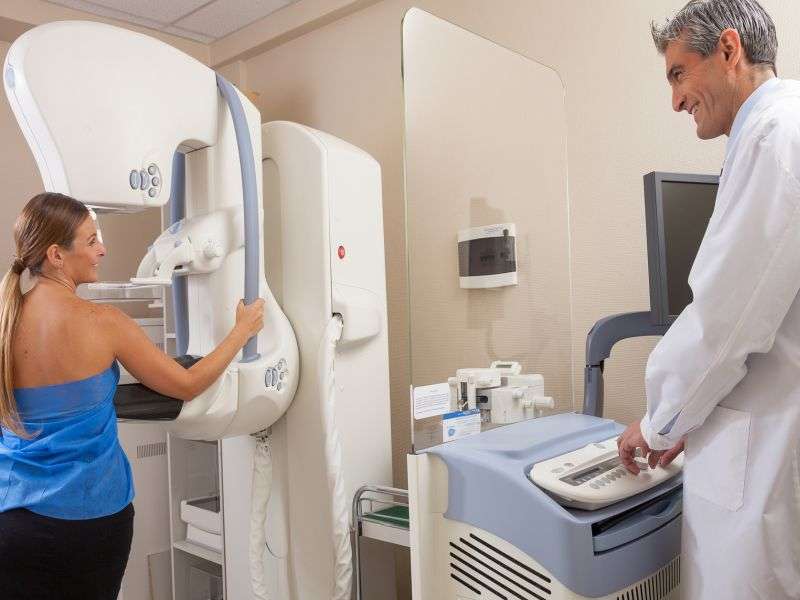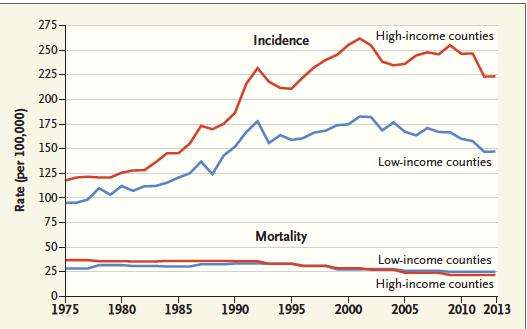More cancers caught in wealthy people

(HealthDay)—Wealthy Americans are more likely to be diagnosed with some types of cancer than poor people, a new study finds.
The reason: It's not because affluent people are more likely to get cancer, but rather because they undergo more medical tests, the researchers explained.
The study authors analyzed data on four types of cancers (breast, prostate, melanoma and thyroid) in high-income counties (median annual income above $75,000) and low-income counties (median annual income less than $40,000).
Rich counties had far higher diagnosis rates for the four cancers than poor counties, but the combined death rate was similar for both. That suggests rates of these cancers are actually similar in rich and poor counties, the researchers said.
Several factors may explain higher diagnosis rates in rich counties, the researchers said.
Affluent people may expect and demand more testing, and health systems serving them may regard offering more testing "as a good way to produce more patients and increase business," said Dr. H. Gilbert Welch and Dr. Elliott Fisher, of The Dartmouth Institute for Health Policy and Clinical Practice.
"If we want to move toward more sustainable and affordable health care systems, we're going to have to understand what's driving the overutilization of care and develop better ways to address it," Fisher said in a Dartmouth news release. He is director of the institute and a professor of health policy, medicine and community and family medicine.

For example, the study authors suggested moving away from the traditional fee-for-service model; reducing, or at least disclosing, financial conflicts of interest (such as doctors who receive payments from breast and prostate care centers); and adopting a different approach to medical care.
"Doctors and other health care professionals tend to overstate the role of medical testing in promoting health—particularly in people who aren't sick," Welch said in the news release.
"A healthy diet, regular exercise, and a sense of purpose are very often the best tools people, at every income level, have to maintain good health," he said.
Welch is a professor of community and family medicine at Dartmouth.
The study was published June 8 in The New England Journal of Medicine.
More information: The World Health Organization has more on cancer prevention.
Copyright © 2017 HealthDay. All rights reserved.


















